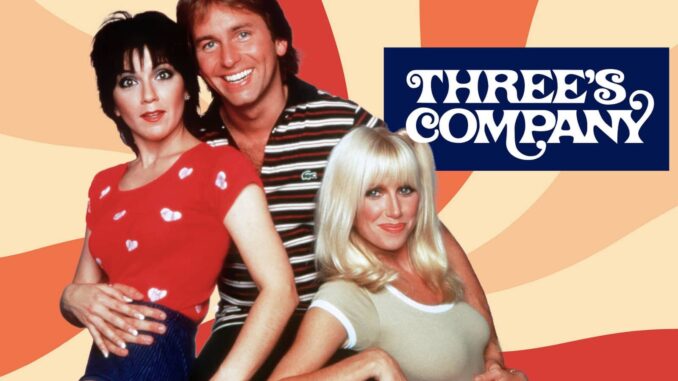
Why the Spotlight is on ‘Three’s Company’
Let’s be honest: nostalgia is powerful. Shows like Three’s Company, with their light-hearted humor and iconic characters, hold a special place in television history. But as we revisit this 1970s sitcom, many are beginning to question its relevance in today’s world. Can a show riddled with outdated stereotypes and problematic tropes still hold up? Spoiler alert: not really.
A Beloved Sitcom with a Complicated Legacy
Three’s Company was undeniably groundbreaking in its day, but when you peel back the laughter, the cracks in its foundation become clear. From casual sexism to harmful LGBTQ+ stereotypes, this show carries a lot of baggage that modern audiences find hard to ignore.
Revisiting the Problematic Themes of ‘Three’s Company’
The Misrepresentation of LGBTQ+ Characters
Let’s talk about the elephant in the room: Jack Tripper’s infamous pretense of being gay to avoid suspicion. Back then, it was a comedic device. Today? It feels tone-deaf and disrespectful to the LGBTQ+ community.
- Stereotypes Galore
The portrayal of Jack’s “gay” persona leaned heavily on flamboyant, over-the-top stereotypes, reinforcing harmful misconceptions. - The Bigger Picture
This trope wasn’t unique to Three’s Company. However, its widespread popularity amplified these problematic ideas, normalizing them in mainstream media.
Casual Sexism in the Spotlight
For a show that featured two strong female leads, Three’s Company often fell into the trap of reducing them to eye candy.
- Janet and Chrissy Deserved Better
While Janet was often portrayed as the “responsible” one and Chrissy as the “dumb blonde,” both characters were frequently subjected to objectification. - The Male Gaze at Work
Many episodes thrived on jokes that revolved around women’s appearances, perpetuating outdated gender norms.
Fatphobia and Body Shaming
It wasn’t just sexism and homophobia; Three’s Company also indulged in cheap laughs at the expense of people’s bodies.
- The Damage of Fatphobic Humor
Throwaway jokes about weight reinforced the toxic idea that a person’s worth is tied to their appearance.
The Cultural Impact of Problematic Content
Normalizing Toxic Behavior
The sitcom’s light-hearted tone often masked the underlying harm of its humor, making toxic behaviors seem acceptable or even endearing.
- Laughing at, Not with
Many jokes were at the expense of marginalized groups, punching down rather than lifting up.
Perpetuating Harmful Ideals
By embedding stereotypes in comedy, Three’s Company contributed to societal norms that marginalized communities are still fighting against today.
Why ‘Canceling’ Isn’t About Erasing History
Understanding the Context
“Canceling” isn’t about pretending Three’s Company never existed; it’s about acknowledging its flaws while striving for better representation moving forward.
Learning from the Past
Critiquing shows like Three’s Company allows us to reflect on how far we’ve come and identify areas where we still need growth.
The Role of Media in Shaping Culture
Television is more than entertainment—it’s a mirror to society. Shows that perpetuate harmful ideas deserve scrutiny, no matter how beloved they once were.
What Does ‘Canceling’ Look Like in Practice?
Modern Alternatives to Problematic Classics
Rather than clinging to outdated shows, audiences can embrace modern sitcoms that prioritize diversity and inclusion.
Balancing Nostalgia with Accountability
It’s possible to appreciate Three’s Company for what it was while holding it accountable for its missteps.
Conclusion: A Call for Conscious Consumption
At the end of the day, revisiting Three’s Company isn’t about condemning it outright—it’s about recognizing its impact and choosing better for the future. As audiences, we have the power to demand content that uplifts and respects everyone. So, let’s leave the problematic tropes behind and make room for stories that truly reflect the diversity and complexity of our world.
FAQs
1. Why is ‘Three’s Company’ being criticized today?
The show contains outdated stereotypes and humor that many now consider offensive, particularly regarding gender roles and LGBTQ+ representation.
2. Is canceling the same as erasing history?
No, canceling is about accountability and fostering conversations about problematic content, not erasing its existence.
3. Can I still enjoy ‘Three’s Company’ despite its flaws?
Yes, but it’s essential to view it critically and acknowledge the issues present in its storytelling.
4. What are some modern sitcoms that promote inclusivity?
Shows like Brooklyn Nine-Nine, Schitt’s Creek, and The Good Place offer humor while prioritizing diverse and respectful representation.
5. What can we learn from critiquing older TV shows?
Critiquing past media helps us understand how cultural norms have evolved and pushes us to demand better representation in the future.
